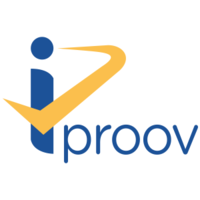1. What is the mission and vision of iProov?
iProov’s mission is to make the internet a safer place for businesses and consumers. We provide trusted biometric authentication that is seamless, secure and effortless. Our vision is for all governments and enterprise institutions to be confident that the remote user is real and can be trusted. iProov strongly believes that the user and usability should be the heart of any solution and as such must be accessible to all users irrespective of their abilities, literacy and digital capability.
iProov ensures trust online through Genuine Presence Assurance. Governments, financial institutions and other enterprises are using iProov’s Genuine Presence Assurance technology to ensure that an online user is not only the right person, but that they are a real person and authenticating right now. This unique approach protects against impersonation and criminal attacks, providing the highest levels of security alongside effortless usability.

2. Why is trustworthy digital identity critical for existing and emerging markets?
One of the most significant challenges with digital service is establishing trust. A key element of which is how to bind the digital identity attributes of a person, to the person and assuring only they can assert that identity. As online digital becomes the primary channel to interact with services, customers and citizens are increasingly vulnerable to impersonation attacks from fraudsters compromising their identity. It is crucial to have consented, secure and effortless identity verification and authentication for everyone.
In many economies, parts of the citizen population have no formal identity documentation. Embracing digital identities will enable all members of society to be included, enabling them to unlock access to services previously not possible.
3. How will digital identity transform the Canadian and global economy? How does iProov address challenges associated with this transformation?
Digital identities are the cornerstone of doing businesses in the 21st century, they offer speed and flexibility in remote interactions which creates greater competition, economical efficiency, and greater citizen empowerment and inclusion.
iProov provides governments and enterprises with a very high level of assurance that the person interacting with their service is the legitimate user while protecting against criminal attacks. iProov Genuine Presence Assurance technology ensures trust by validating and authenticating users online to the highest level of certainty i.e. that a user is a real person, the right person, and authenticating right now.
4. What role does Canada have to play as a leader in the space?
DIACC is playing a critically important role in coordinating a national digital identity and framework in a way that is notably lacking in the US and UK. By showing how a liberal democracy can successfully empower citizens with a nationally structured system of digital identity, Canada will exert a very powerful influence on both sides of the Atlantic and help lead the G7 to a better place.
5. Why did iProov join the DIACC?
iProov believes that trust between a provider and its citizens or customers must be achieved alongside two critical objectives:
- Accessibility and inclusion – providing services which offer maximum access, irrespective of their abilities, literacy and digital savviness.
- Sustainable security – ensuring a secure environment, business processes and centralized management controls to flexibly evolve and manage future, unknown risks.
It is this experience and insight that iProov brings to DIACC and can help DIACC in developing digital identity standards.
6. What else should we know about iProov?
The iProov solutions are trusted at national scale levels today with institutions such as:
- The UK National Health Service – iProov provides strong authentication to onboard citizens in the UK to the NHS Login mobile app. With iProov, citizens registering for the NHS app are able to authenticate themselves in real-time with the image on their passport or driver’s license, allowing them to book medical appointments, order repeat prescriptions, and gain access to their patient record.
- The UK Home Office – the EU Settled Status scheme is utilizing iProov to assure the genuine presence of remote users and to verify that the applicant is the rightful holder of the validated ID document. Over 3 million EU citizens have used the service to apply for permanent residency status.
It is this experience and insight that iProov brings to DIACC and can help DIACC in developing digital identity standards.
iProov’s proven, simple and inclusive user experience is critical to the service we offer to our Government and Enterprise customers, and has been a key contributor to our successful engagements with some of the world’s most security-conscious and user-friendly organizations.
